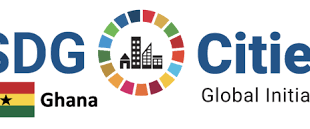The Head of Community Health at University of Ghana Medical School, Prof. Alfred Yawson is urging the government to urgently begin processes to recruit and train unemployed nurses to provide care and treatment for the increasing number of COVID-19 patients.
According to him, the few health workers available are getting overwhelmed with the many cases as some are being compelled to work long hours.
Speaking on The Big Issue on Saturday, Prof. Yawson said bringing in the unemployed health workers will help bring relief to the frontline health workers and potentially reduce the number of fatalities from the virus.
“We have very few of these skilled nurses and doctors around and this is a major challenge. In the initial phase of the pandemic, a lot of cases were asymptomatic, mild to moderate and the system could cope, but now we are getting into a phase where the severely ill and critically ill numbers are increasing and that is where we need to as a nation look at and build capacity,” he said.
“We need some short term quick-fix solutions, such as organizing in-service training, short-term courses. We have several medical officers who are sitting at home who have not been engaged by the system and these are people with skills, same with nurses. We need to get these people on board, train them, give them some quick fix training so that they will be able to help fix this current situation,” Prof. Yawson said.
He indicated that the issue of shortage of health workers on the frontline in the fight against COVID-19 cuts across the entire country with facilities such as the Korle-Bu Teaching Hospital, Komfo Anokye Teaching Hospital, National Infectious Diseases Center and the Ga East Municipal Hospital all grappling with it.
Prof. Yawson said if the human resources issue is not tackled, the health sector may struggle to cope.
“We need to bring in more hands and more persons who can relieve the health workers. These health workers gradually are becoming tired, they work long shifts and some continue 24 hours and 36 hours and these are humans and may gradually become prone to errors. They are also at risk [of infection]. If we begin to have these few persons also becoming infected, then we are going to see more increases in cases,” he said.
Currently, there are concerns about the surging cases of COVID-19 in the country. According to the Ghana Health Service, the country has recently been recording a daily average of 600 new cases.
The Ghana Medical Association has already warned that should the trend continue, the country’s health system will be overwhelmed.
 Home Of Ghana News Ghana News, Entertainment And More
Home Of Ghana News Ghana News, Entertainment And More





